As a raging global pandemic compelled people to beat a retreat from public life, some in the URI community found consolation, gratification, and inspiration in an ancient practice: the reading, writing, and recitation of poetry.
By Marybeth Reilly-McGreen
To paraphrase Mark Twain, the reports of poetry’s death are exaggerated. The rumors began in 2013 when The Washington Post posed the question, “Is poetry dead?” after playwright Gwydion Suilebhan tweeted as much that same year. Two years later, U.S. poet laureate Juan Felipe Herrera told CNN that The Washington Post was mistaken, arguing that rap, songs—even greeting cards—contained, at their core, a shared “verbal art,” or poetry. “You could say we live in poetry,” Herrera told the media outlet.
“Isn’t there poetry everywhere in the universe? There’s something cyclical about every process in the world, and it is through these circles that patterns, then rhythms, then rhymes, then music, are formed.”
—Lila Bovenzi ’22
More evidence: In 2016, singer-songwriter and poet Bob Dylan won the Nobel Prize for Literature. In 2018, The Atlantic went toe-to-toe with The Post, proclaiming, “Poetry is Everywhere,” and declaring poems “viral, vital, and invincible.”
Instagram contributed its verse in the eponymous Instapoetry. Its queen is 28-year-old poet Rupi Kaur, with 4.1 million followers. Kaur’s first two poetry collections, 2014’s milk and honey and 2017’s the sun and her flowers, sold a combined 8 million copies.
2020? A big year for poetry. Poet Louise Glück was awarded the Nobel Prize for Literature, and the first Native U.S. poet laureate, Joy Harjo, began a near-unprecedented third term of service to the Librarian of Congress, only the second poet ever to be so honored. Harjo’s immediate predecessor, Tracey K. Smith, is sharing poetry daily through the popular podcast, The Slow Down, and U2’s Sirius XM Radio channel features poets on the weekly show, Elevation. On Facebook, former U.S. poet laureate Billy Collins is reading poetry daily to thousands, leading what he, in tongue-in-cheek fashion, terms a movement toward world poetry domination. “The pandemic,” Collins claims, “is slowing everything down to the speed of poetry.”
“Poetry has gotten us through wars, pandemics, and our own personal grievances in a way that nothing else can.”
—Briana Gagnon ’20
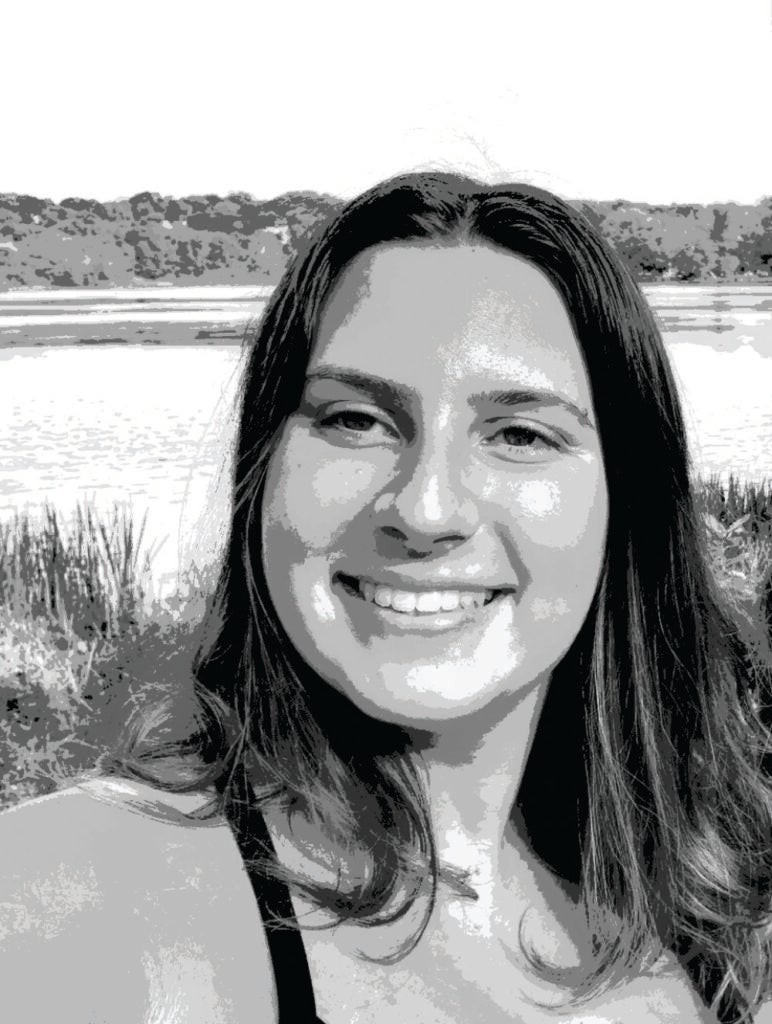
And in January of this year, 22-year-old Amanda Gorman, the youngest inaugural poet in the nation’s history and its first-ever youth poet laureate, made history reciting her poem, “The Hill We Climb.”
So to poet Briana Gagnon ’20, one of the winners of the English Department’s 2020 Nancy Potter Poetry Contest, the suggestion that poetry is past tense is laughable.
“Why would we still read “Beowulf,” John Keats, or even Robert Frost if poetry didn’t matter?” Gagnon says. “Poetry has gotten us through wars, pandemics, and our own personal grievances in a way that nothing else can. Poetry kept me sane during this pandemic.
“A part of my heart and soul,” Gagnon continues, “is left in every poem I’ve ever written. Poetry allows me to share my thoughts and feelings on paper, and that’s one of the coolest things I can think of.”
“I think poetry is an integral part of prompting societal and political change.”
—Nate Vaccaro ’19
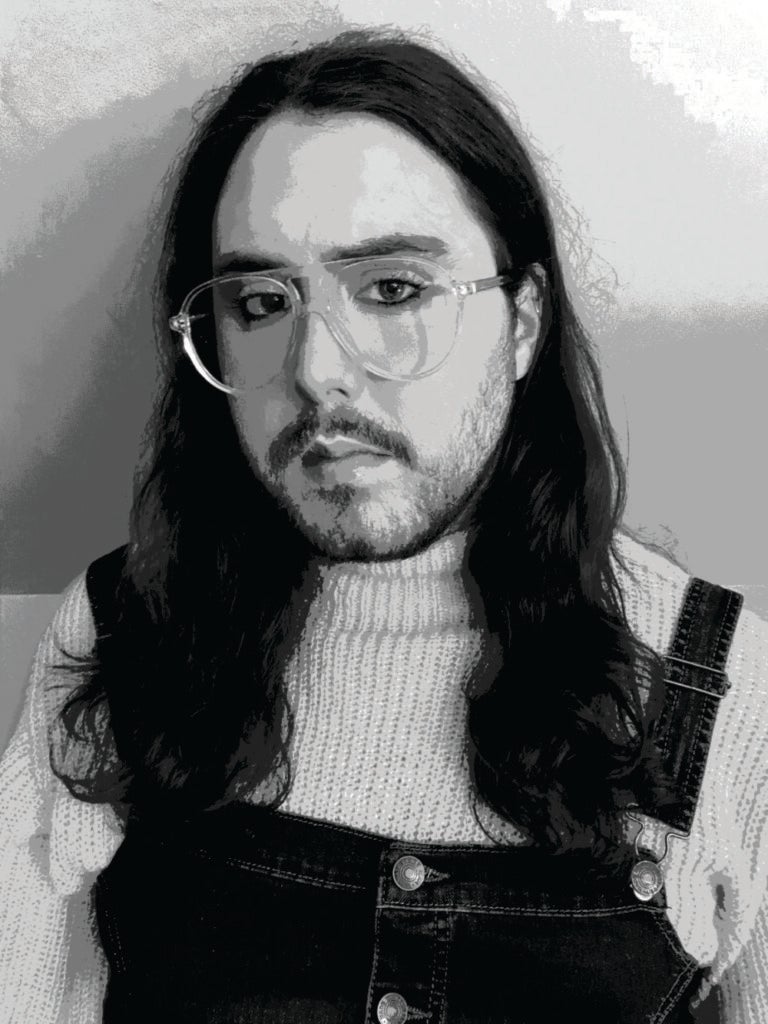
What is it about poetry that not only endures but prevails over flashier, shallower competition—Twitter, TikTok, unboxing videos, and Tiger King, for example? Put another way, what makes poetry cool? For some, like Gagnon, it has been a panacea. For others, like Nate Vaccaro ’19, poetry is a rallying cry. “I think poetry is an integral part of prompting societal and political change. Expressing yourself and your truth through language and poetry is inherently a political act. I also consider protest signs, headlines, and slogans to be under the umbrella of poetry, allowing people to create a shared language and a framework to communicate their needs, demands, and solutions.
“I believe poetry is going to be especially cool for Gen Z and upcoming generations,” Vaccaro says. “Our information-saturated world is becoming increasingly truthless and overwhelming, and I think poetry is the genre best-suited to offer a road map out of our current cultural trauma. It excites me to see poetry emerging as a means to both celebrate and critique popular culture.”
Internet II
Back in Princeton my father at twenty-five
Spun original digits into green code, easing
Modems into binary webs where they pre-
Exist Zuckerberg. Before I was a nervous spiral
Inside my mother I was a tiny electric prick
Trapped by the only ethernet cable in Kendall Park,
New Jersey. His shoulders hunched against
The 2000s, dad’s hands calloused in numerics
Volumes of printer paper ebbing his fingerprints
Raising up his equations as witness to the wire
Conceiving me. Zapped in Rhode Island
Child of the net at twenty plugging the whole
Radio in my mouth like every college man studying
The marks of Woolf and Plath, tendrils of the canon text
Deflected by the router’s right hand.
—Nate Vaccaro
To Give Voice. To Make Meaning.
This past summer, doctoral student A.H. Jerriod Avant curated a special series of poems for Poem-a-Day on poets.org, the website of the American Academy of Poets. It was one of the most recent honors in a long list of residencies, scholarships, and fellowships awarded to Avant.
“I think about Martin Luther King Jr.’s speeches and how artful and intentional he was with his language, to tear down these systems of oppression that plagued Black people for decades, for centuries. I’m also influenced by artists such as Jimmy Hendrix, and his 1969 rendition of ‘The Star-Spangled Banner’ at Woodstock,” Avant says. “I’m always in awe of how transgressive it is in light of Hendrix’s relationship to that anthem. So when I go to the page, or when I’m thinking about poems, I’m always trying to tear something down, or I’m punching up from a place of dissatisfaction, grievance, from a place of oppression, or some subjugated position that wants and imagines better.”
Ph.D. student Afua Ansong’s chapbook, Try Kissing God, was published this year. In it, Ansong considers identity “and the relationship between the sovereign and man in African diaspora culture.”
“I thought of poetry as a space to begin again.”
—Afua Ansong
Doctoral student Afua Ansong
The Ghanian-American poet emigrated to the United States when she was a child. “I came to poetry with anger. Moving to America, I’d lost my friends, I’d lost my language, I’d lost most of my family, and I had to make a new life. Initially, I didn’t like poetry. I didn’t understand it. But it became the medium through which I could express myself and make meaning of why I was in the United States.
“I thought of poetry as a space to begin again.”
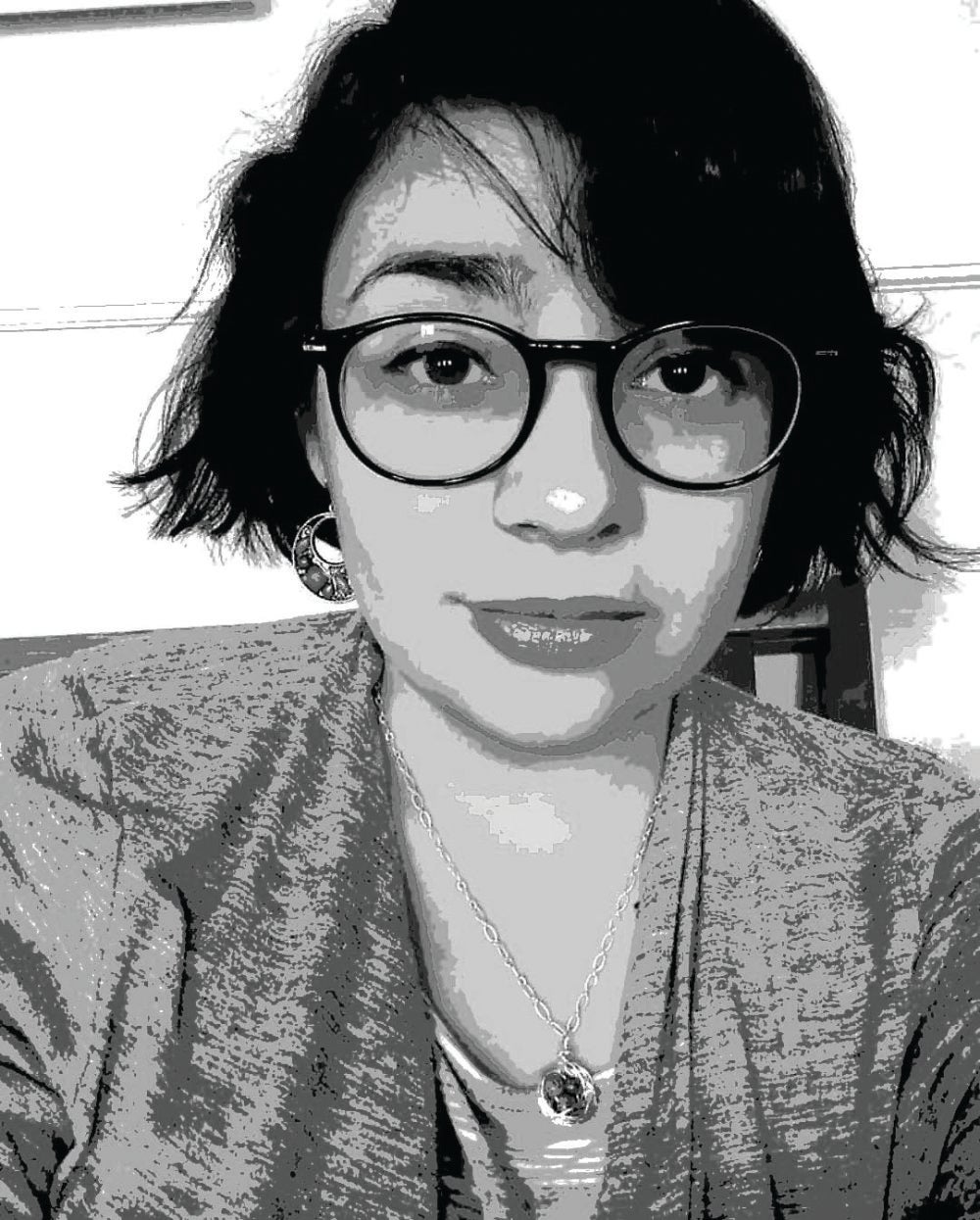
COVID-19 derailed Ansong’s plans for a writing residency and research for her poetry dissertation collection, but social media provided an outlet for her art. “It allowed me to increase my virtual connections to other writers and readers. I reached out to many of my Ghanaian readers via Twitter, and this has gotten me excited about creating poems for a larger audience.”
“There are no rules except the ones I make.”
—Lila Bovenzi ’22
Potter Poetry Prize winner Lila Bovenzi ’22 understands how poetry excites. “You create your own version of language. Other forms of writing are like building with bricks, whereas writing poetry is like sculpting clay—it’s incredibly moldable,” she says. “I also think there is much greater opportunity to use all different forms of figurative language.
“There are no rules except the ones I make.”
Mother
The moon
—of which
you said
would probably
be cold
to touch
that night
—has risen
above the lake.
The stars
cannot compare:
their lonely
rhythms of shining
are not held
by the waves.
Wherever you may
be, in this moment,
I want you
to know
the sky
has lifted
its curtains
to warm
me with wonder.
I see myself:
a baby
quiet, eyes shut,
in the womb
of this moon.
—Afua Ansong
To Find Respite from the Overwhelming
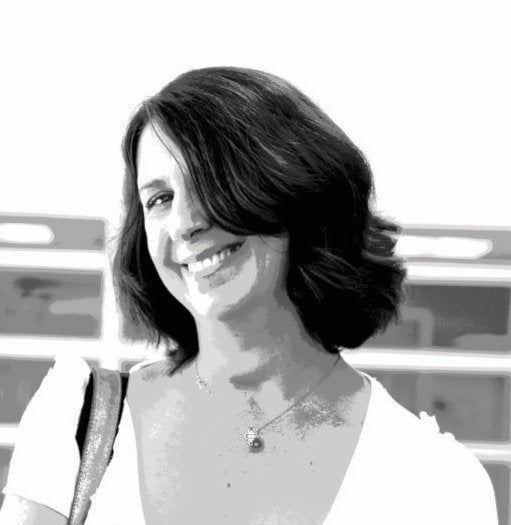
“One of the things about memorizing a poem is that it never stops being with you, but its meanings will shift and change and reward across time.”
—J. Jennifer Jones
Last fall, URI’s Department of English introduced a number of courses as part of its new creative writing option. Associate Professor of English J. Jennifer Jones taught Poetry Out Loud, a spoken-word, online poetry course for majors and non-majors alike, that received high marks from students such as Abigail Dodd ’22. “Of all my classes, yours has made me feel most comforted and seen as a student struggling to navigate this year,” Dodd wrote to Jones. “It offered me an anchor to ground myself when things felt overwhelming and absurd.”
From Kristen Karavitch ’24: “I truly think that you have helped me find a newfound love of poetry! I registered for this class thinking that it was just another credit requirement that was required for my engineering major; however, this course has taught me so much.”
And Jordan Kalinsky ’24 wrote, “I would not have achieved the level of skill in my work without your valuable guidance and feedback. Thank you for being a part of my COVID lemonade. Your class truly helped me make it through my first semester of college with work that felt meaningful and rewarding.”
Abigail Dodd ’22
Kristen Karavitch ’24
Jordan Kalinsky ’24
“Poetry offered me an anchor to ground myself when things felt overwhelming and absurd.”
—Abigail Dodd ’22
In addition to the usual benefits a literature class offers—the development of habits of close reading, discernment, and concision; critical thinking and analysis; and, of course, honing of writing and memorization skills—the course rewards in other ways both profound and enduring, Jones contends. Universities have a two-pronged mission: preparing students for a career and nurturing self-realization and growth, she says. “Those two things are always uneasy with each other and, in the contemporary, hyper-consumerist environment in which we currently exist, preparation for a career can come at the expense of self-realization and social interaction. The work I’m trying to do is to open students up to the relationship between career preparation and self-realization, and the way in which one rationalizes them in one’s world, in life.
“A course like this is meant to encourage lifelong self-reflection,” Jones says. “One of the things about memorizing a poem is that it never stops being with you, but its meanings will shift and change and reward across time.”
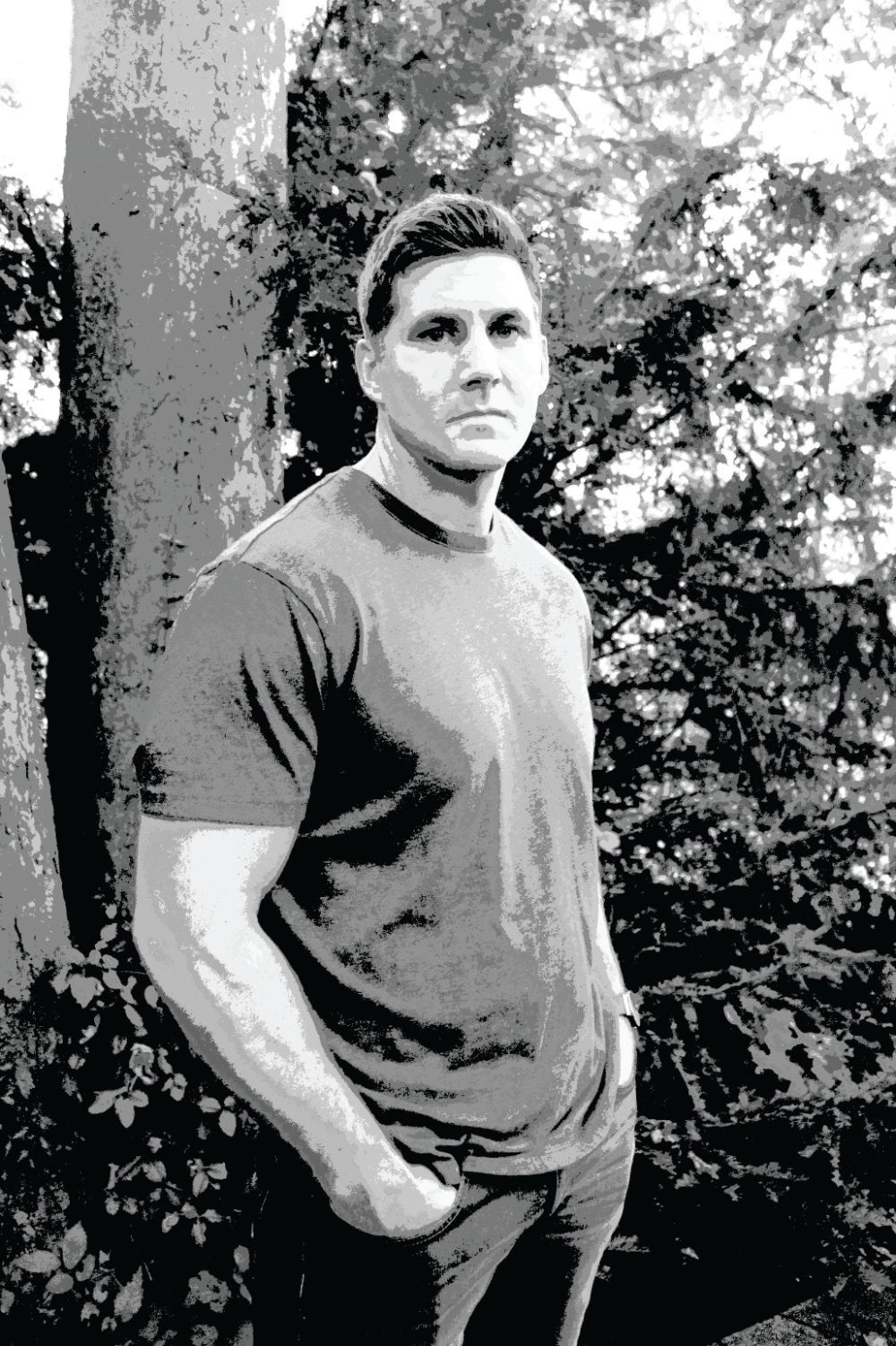
Charles Kell, Ph.D. ’19, teaches literature and poetry at the Community College of Rhode Island. In response to the Black Lives Matter movement, he introduced students to poems about George Floyd, Tamir Rice, and Freddie Gray. “Students really gravitate towards the poems. They’re like, ‘Wow, this is what’s going on in the news, and here’s poetry about it. They’re not used to people writing about ‘the now.’”
Kell’s love of poetry started early, in elementary school, with a Langston Hughes poem. “I ripped the poem out of the book, folded it up, and put it in my pocket,” he says. “Hughes was one of the first writers I fell in love with.”
Writing poetry came much later. In the fall of 2013, then-Ph.D. student Kell took a creative writing class with poet and URI English professor Peter Covino. Covino introduced Kell to poet Timothy Liu, with whom Kell struck up a friendship after the poet spoke at URI. Both Liu and Covino encouraged Kell’s efforts. Kell’s prize-winning and first collection of poetry, Cage of Lit Glass, was published in 2018.
In his teaching, Kell strives to ignite in his students the same enthusiasm that prompted him to purloin poems once upon a time. It’s working. His poetry students have a choice in their final assessment: critical paper or creative assignment. “The majority of them choose to do the creative assignment. And they have the greatest time. I have a lot of non-traditional students—older students who are nurses, for example—and they’re writing poems. And it might be the only time they write poems, but they’re just having a blast.”
The Other Novel
where the boy sings
for hours in the forest alone.
His aching hand claps bark
for each night spent on the ground.
He went looking for his dead sister.
A circus finds him, feeds the hungry
mouth sweet bread, cool liquid drips
down his chin staining a torn shirt.
Stars are clocks floating above
the clockmaker’s skin. The boy runs
away to go looking again. Crickets
click bildungsroman to the red leaves.
It was stupid, this idea. The boy
agrees. He thinks I can’t see him perched
in a tree with bow & arrow pointed
at my lung. In its golden spit, rusty pins.
I rip each page to fine bits, scatter them
on the forest floor where they will
become loam, swamp fisted with insects.
—Charles Kell
To Achieve Connection
Poetry may be the most malleable and mutable literature there is if you believe that prayers, spells, epic tales, plays, musicals, spirituals, protest songs, hip-hop—and even graffiti art—are permutations of the form.
“A poem is a form of self-expression that arises when a chord has been struck within.”
—Shanee Stepakoff
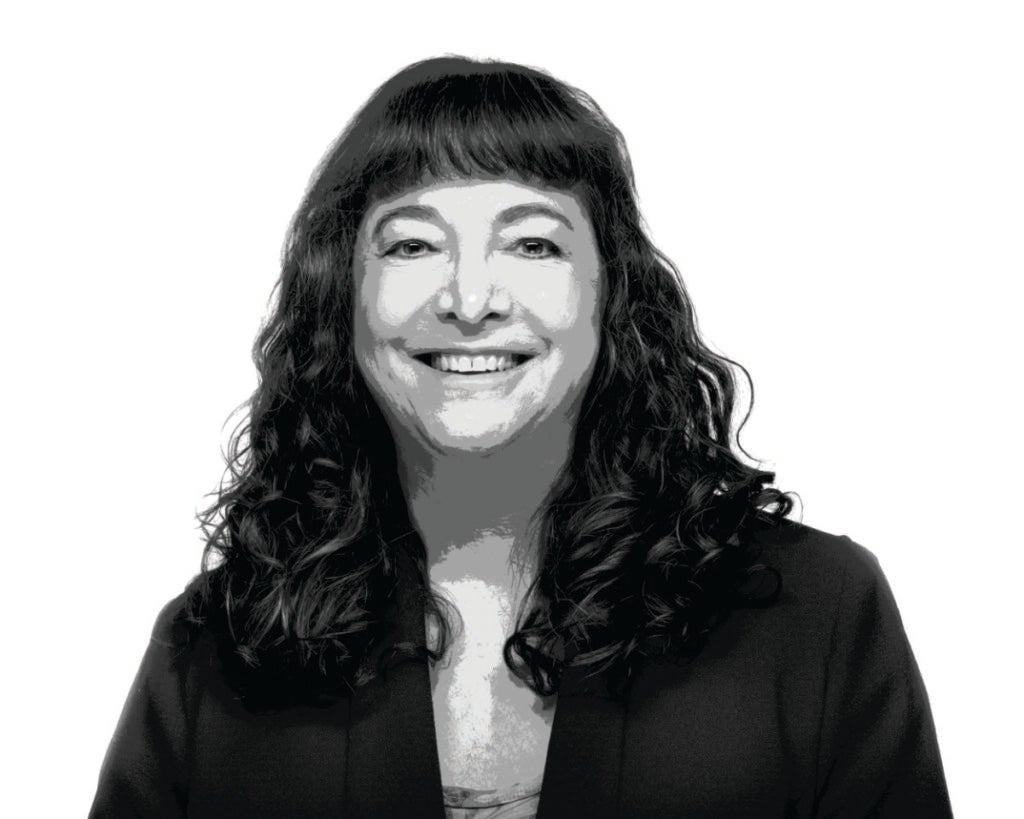
And then there is the poetry that bears witness. Ph.D. student Shanee Stepakoff’s first poetry collection, Testimony, concerns accounts told to a United Nations war crimes tribunal established in the aftermath of a civil war in Sierra Leone that lasted from 1991 to 2002. Testimony will be published in July of 2021. “I had lived and worked in the region for several years and was aware that many truths about the war were not reaching an international readership,” she says, “because most readers from outside of the West African sub-region were not inclined to spend hours poring through books on subjects such as global history or political science.
“I felt that a collection of poems would reach people who might otherwise not take an interest in the impact of a civil war in a faraway country,” she says. “By definition, a poem is a form of self-expression that arises when a chord has been struck within, when a person has been touched in their heart or soul, and when no other language will suffice.”
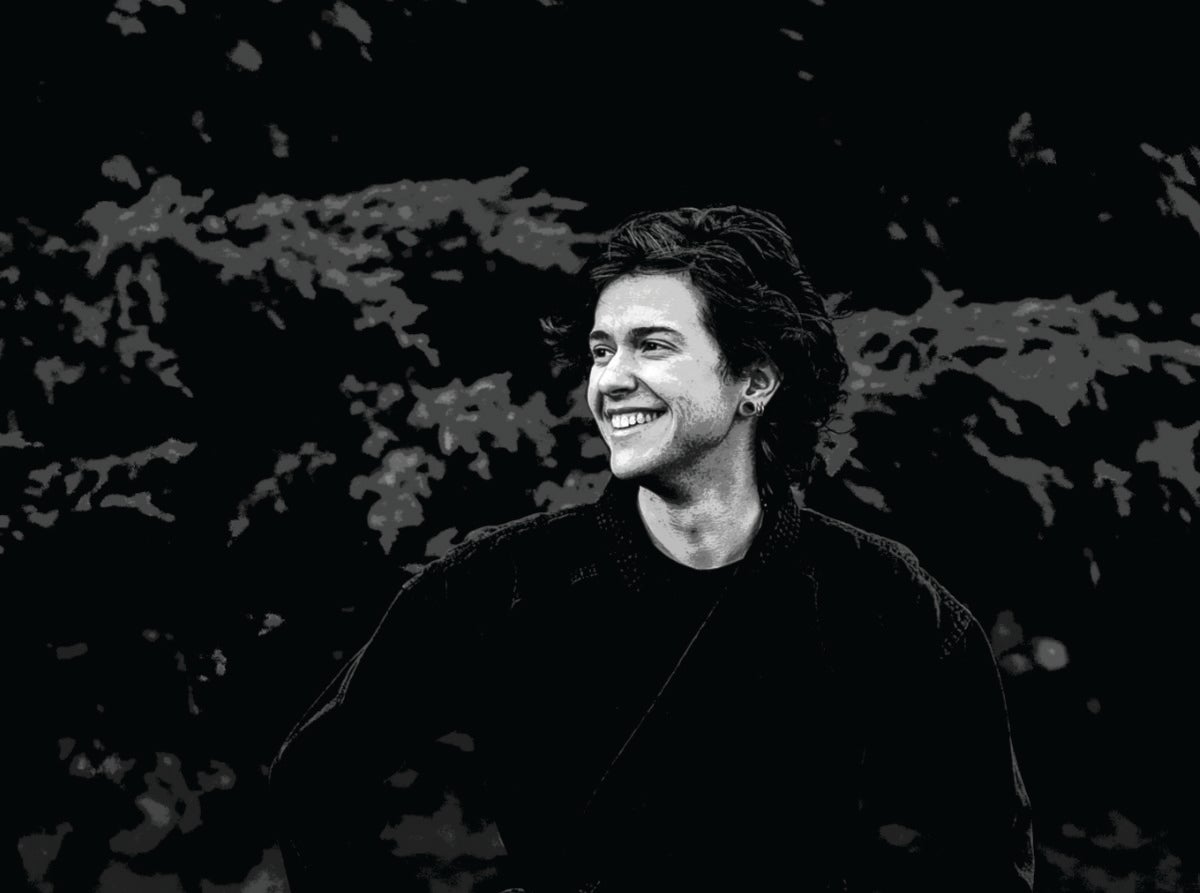
Robin Cosgrove ’22
Robin Cosgrove ’22, a kinesiology major, knows the feeling of a soul’s connecting to poetry. He took first place in a recitation competition in Jones’ class for his rendition of William Blake’s “Mad Song.”
“For me, poetry is utterly indispensable. I find wrestling meaning out of words is exhilarating. Of course, you can read a poem and get the surface meaning, but you don’t really engage that way,” Cosgrove says. “But if you dig a little bit deeper, you get a lot more, and that’s the reward for me. It’s that feeling that I’ve gotten something extra that not everybody else would see if they’re just surface reading.
“Poetry is utterly indispensable. I find wrestling meaning out of words is exhilarating.”
—Robin Cosgrove ’22
“Even if I am utterly exhausted and have no attention span to give, I can read a short poem and something catches my attention and I dive in and, suddenly, it’s two in the morning.”
Poetry is everywhere, Bovenzi says. And it’ll likely outlast us.
“Poetry will exist as long as humanity survives,” Bovenzi predicts. “And even if we die, isn’t there poetry everywhere in the rest of the universe? If there wasn’t, then where could we have gotten it from? There’s something cyclical about every process in the world, and it is through these circles that patterns, then rhythms, then rhymes, then music, are formed.
“The way life and death fold into each other in an endless loop must be a form of poetry in and of itself, ”Bovenzi adds. “So in that way, I think poetry is immortal, even if we aren’t.” •
M.A.T.E.S.
(My Addiction To Eating Swallowtails)
I saw that its wings were stuck between my teeth
When I leaned in to look in the mirror.
Still soft, still alive, they put a sparkle in my eye,
Which I saw when I peered even nearer.
They fluttered with the exhale of my breath,
A gothic pair of lace curtains,
So I made sure to clamp my mouth shut.
When my lips once more parted,
the wings had both vanished,
But a rumbling began in my gut.
A song or a scream, I couldn’t tell which,
Came hammering up through my throat.
My voice gleamed with agony,
Its tone a stream of melody,
Casting spells with each painful new note.
At last, I did laugh,
I did grin; I rejoiced
For I knew I was gifted that day.
That upon the ingestion,
I was granted ascension,
And gravity lifted away.
Now each word I speak shall rise up into space
Until at last it burns up with the stars.
And I’ll know when they blink,
Which I’ll share with a wink,
That I’ve planted the sky with new scars.
—Lila Bovenzi
Discover more poetry, video, and photos in our web-only supplement.
Illustrations: Mason McMillen
Photos: Brandon Fuller; Nora Lewis; Courtesy Lila Bovenzi; Robin Cosgrove; Abigail Dodd; Briana Gagnon; Kristen Karavitch; Jordan Kalinsky; Charles Kell; Shanee Stepakoff; Nate Vaccaro
April is National Poetry Month. Inspired to Read?
Start with these favorites from some of our URI poetry readers and writers.
J. Jennifer Jones, Associate Professor of English
- “The Prelude” by William Wordsworth
In lines 84–180 from Book IV of “The Prelude,” Wordsworth creates a quiet, yet startling, poetics of temporality in which “life and afterlife” become inextricable. - “To Autumn” by John Keats
In Keats’ “To Autumn,” the poet involves us in the realm of the in-between, in which a thing—a lamb, or a flower—develops to the point of near-bursting into something else. - “Jenny Kiss’d Me” by Leigh Hunt
Hunt wrote this wonderful, short poem about his first visit with friends after surviving the flu during a flu epidemic. I taught it last semester to my ENG 120-Poetry Out Loud students.
Robin Cosgrove ’22
- “The Tyger” by William Blake
When I was 12 years old, “The Tyger” was my introduction to poetry recitation, and to Blake, who is my favorite poet. The poem has been important to me ever since.
Jordan Kalinsky ’24
- “The Wasteland” by T.S. Eliot
A beautifully crafted, sobering commentary on the utter futility and darkness of modern life in the wake of World War I, this poem is packed with allusions that transcend time, national borders, and religious divides. This poem met me at my lowest point, and has inspired my personal work.
Afua Ansong, Ph.D. Student
- “Perhaps the World Ends Here” by Joy Harjo
The central metaphor in this poem is a dinner table where beauty and chaos unfold. I am reminded that the simple act of eating dinner can create a sense of community and allow us to enter spaces of revival.
Nate Vaccaro ’19
- “I Cannot Be Quiet an Hour” by Mary Ruefle
I return to this poem again and again, particularly during this period of social isolation, and always find new meaning in its simple, devastating march forward.

I thoroughly enjoyed this piece. Nice work, MaryBeth.